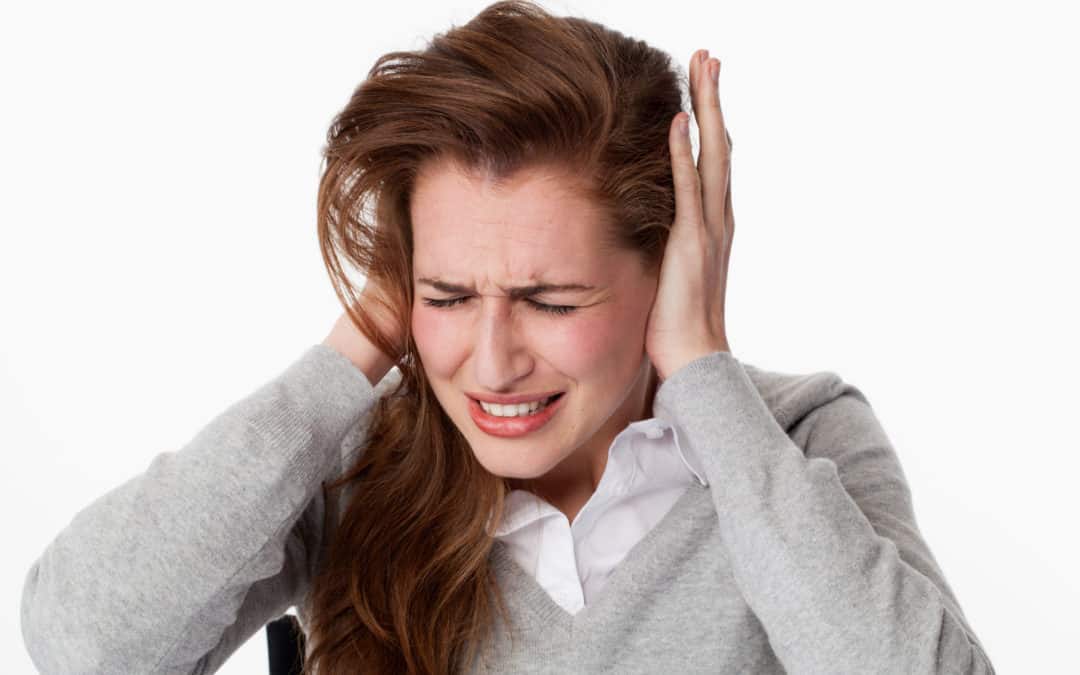
Do you experience ringing in your ears that won’t go away? You’re not alone. The American Tinnitus Association states that 15 percent of Americans experience tinnitus. That means more than 45 million Americans hear an annoying, high-pitch tone like you do. The causes of tinnitus vary, and while there is no cure for the condition, tinnitus treatment and therapies are available to alleviate it.
Tinnitus Symptoms
The single symptom of tinnitus is the perception of a continual noise in one’s ears. While this tone is often described as ringing, the specific noise people perceive varies. While one person may hear a “ringing”-like tone, others may hear hissing, screeching, roaring, buzzing, whooshing, or chirping. The American Tinnitus Foundation provides a set of example tinnitus sounds on their “Symptoms” webpage for people seeking information on the subject.
Tinnitus Causes
Causes of tinnitus vary from person to person. If five people with tinnitus gathered at an office, for example, it is possible that all of them had different reason for their condition.
There are, however, causes for tinnitus that are more common than others. Common tinnitus causes include:
- Exposure to loud, damaging noise. This is the most common cause of tinnitus.
- Sensorineural Hearing Loss. Sensorineural hearing loss, or SNHL, occurs when a person’s inner ear is damaged.
- Traumatic brain injury. Traumatic brain injury (TBI) occurs when sudden trauma, often as a result of an accident or assault, disrupts normal brain function and injures the brain. For military servicemen, blasts are the primary cause for TBI.
- High blood pressure. When a person’s blood pressure rises too high for an extended period of time, the pressure can damage blood vessels. Tinnitus is rarely caused directly by high blood pressure (hypertension), however. More often, it’s caused as a side effect from medication used to treat it.
- Atherosclerosis refers to a buildup of fatty deposits (plaque) that can clog arteries. According to a study published by the National Center for Biotechnology Information, atherosclerosis directly causes tinnitus. And not only that, but tinnitus may be one of the first symptoms of the condition. Atherosclerosis causes tinnitus because the condition reduces blood flow, which hairs in the inner ear require to function. Without the nutrients blood provides, these hairs stop growing, which impedes a person’s ability to hear.
- Impacted ear wax. Ear wax that builds up in the ear canal can impede sound waves from reaching the inner ear and cause temporary tinnitus.
- Prescription drugs that damage inner ear structures are called ototoxic. Medicines with ototoxic effects include aspirin and aspirin-containing products, non-steroidal anti-inflammatory drugs (NSAIDS) like Advil, certain kinds of antibiotics, certain diuretics, chemotherapy drugs, and quinine.
- Meniere’s disease. Meniere’s disease is a disorder affecting the inner ear. People with Meniere’s experience vertigo, hearing loss, tinnitus, and the sensation of fullness or pressure in the ears.
- Idiopathic simply means that something arises spontaneously from an unknown cause.
For more information about tinnitus causes and about treatment for tinnitus, contact one of our 13 Whisper Hearing Centers locations in Central Indiana. Our audiologists and doctors understand that each person is unique and can offer specialized solutions for your
